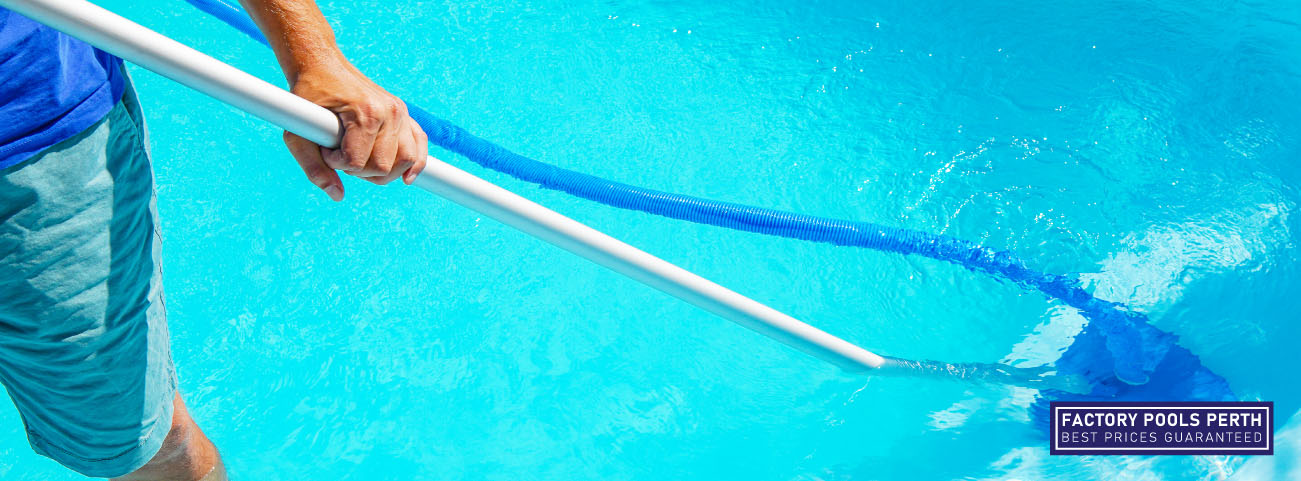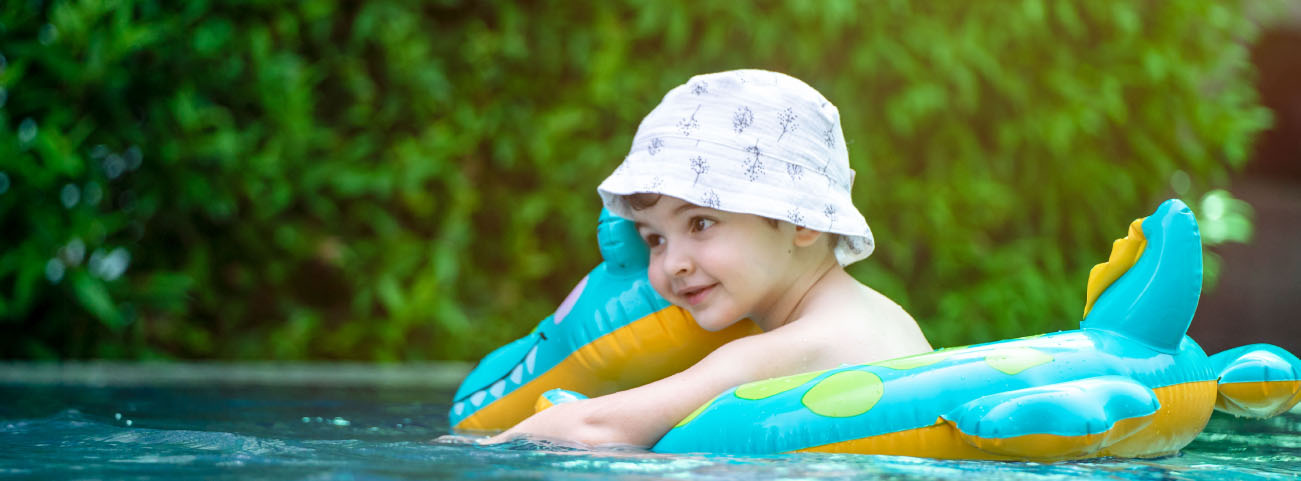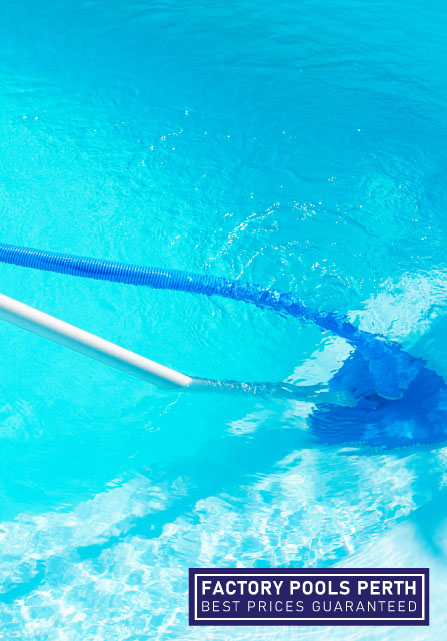What Should You Do If Your Pool Overflows?
When you’re using your pool in the summer and water evaporates fast, it’s hard to imagine that the opposite can happen in winter. Too much water can be more damaging than too little. Unexpected levels of heavy rain can cause your pool to overflow. As excessive water pours over the top, you may also find debris and particles strewn onto any nearby grass, patio, or garden borders.

How to prevent an overflow
It’s estimated an extra 12cm of rainwater will make an average pool overflow. Prevention is better than cure. The best way to stop water from spilling over the edge of your pool is to ensure it never reaches the point when it does. If you know heavy rainfall is on its way, reduce the water level in your pool by 15cm or so.
You should always check that if the worst does happen, your drainage system will help take the water away. An efficient drainage system prevents excess water from gathering and causing damage around the pool and is essential for maintaining a safe and healthy pool.
Too late – the overflow has happened!
If you’ve read this blog too late and the pool is flooded causing water to run off your pool, then act fast. A torrent of rainwater may cause the pool skimmer box to become submerged, so it won’t suck up any debris.
Dirt goes straight back into the pool to leave it contaminated and dirty. If the water breaches the pool, the grimy water may gather underneath the deck, or on surrounding lawns. Draining that excess water out is a priority.

Drain it out
For pool owners with a sand filter or a Diatomaceous Earth filter (DE) filter, it’s easy to reduce the water level in a pool. Turn the pump off, and turn the Multiport Valve to Waste before turning the pump back on.
The water drains out to waste. The water will bypass the sand filter and can’t recirculate back into the pool.
When the water drains away (ideally ½ to ¾ up the skimmer opening), turn the pump off and place the Multiport Valve back into Filter. If it was on automatic mode, make sure it goes back to this setting.
Cartridge filters don’t have backwash valves – each unit is different.
Check your chemistry balance
Rainwater can impact the chemical balance of your pool, leading to algae growth and cloudy water. Once a pool overflow has happened, check the chlorine, pH, total alkalinity levels, calcium hardness and total dissolved solids. People believe rain dilutes the chemicals, but the biggest issue is that rain brings algae spores into your pool. You can shock your pool with chlorine to balance it and kill off algae.
If you’ve been thinking of becoming a pool owner, why not start your journey to having one installed today? Visit one of our display centres or get a no-obligation quote. All our pools are manufactured to a high standard here in WA.
We have a team of knowledgeable experts about fibreglass pools who can answer any queries so you get that pool you’ve always wanted.
What Should You Do If Your Pool Overflows?
When you’re using your pool in the summer and water evaporates fast, it’s hard to imagine that the opposite can happen in winter. Too much water can be more damaging than too little. Unexpected levels of heavy rain can cause your pool to overflow. As excessive water pours over the top, you may also find debris and particles strewn onto any nearby grass, patio, or garden borders.

How to prevent an overflow
It’s estimated an extra 12cm of rainwater will make an average pool overflow. Prevention is better than cure. The best way to stop water from spilling over the edge of your pool is to ensure it never reaches the point when it does. If you know heavy rainfall is on its way, reduce the water level in your pool by 15cm or so.
You should always check that if the worst does happen, your drainage system will help take the water away. An efficient drainage system prevents excess water from gathering and causing damage around the pool and is essential for maintaining a safe and healthy pool.
Too late – the overflow has happened!
If you’ve read this blog too late and the pool is flooded causing water to run off your pool, then act fast. A torrent of rainwater may cause the pool skimmer box to become submerged, so it won’t suck up any debris.
Dirt goes straight back into the pool to leave it contaminated and dirty. If the water breaches the pool, the grimy water may gather underneath the deck, or on surrounding lawns. Draining that excess water out is a priority.

Drain it out
For pool owners with a sand filter or a Diatomaceous Earth filter (DE) filter, it’s easy to reduce the water level in a pool. Turn the pump off, and turn the Multiport Valve to Waste before turning the pump back on.
The water drains out to waste. The water will bypass the sand filter and can’t recirculate back into the pool.
When the water drains away (ideally ½ to ¾ up the skimmer opening), turn the pump off and place the Multiport Valve back into Filter. If it was on automatic mode, make sure it goes back to this setting.
Cartridge filters don’t have backwash valves – each unit is different.
Check your chemistry balance
Rainwater can impact the chemical balance of your pool, leading to algae growth and cloudy water. Once a pool overflow has happened, check the chlorine, pH, total alkalinity levels, calcium hardness and total dissolved solids. People believe rain dilutes the chemicals, but the biggest issue is that rain brings algae spores into your pool. You can shock your pool with chlorine to balance it and kill off algae.
If you’ve been thinking of becoming a pool owner, why not start your journey to having one installed today? Visit one of our display centres or get a no-obligation quote. All our pools are manufactured to a high standard here in WA.
We have a team of knowledgeable experts about fibreglass pools who can answer any queries so you get that pool you’ve always wanted.



